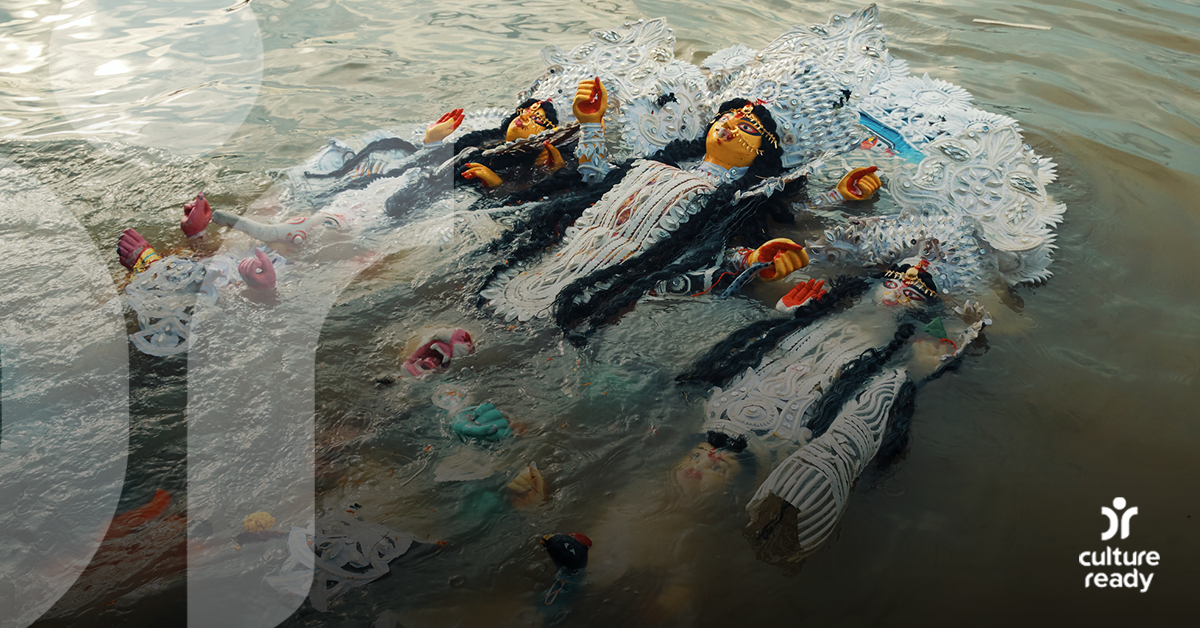Hindu Traditions Practiced Across India
India is rich in cultural diversity, and that diversity is reflected in the Hindu traditions people follow throughout the country.
One of the rituals — or “pujas” — associated with Hindu celebrations is immersing idols in water. From the Ganapati Festival in Mumbai, during which thousands of Ganesh idols are submerged in water, to the Durja Puja festival that honors the Hindu goddess Durja, this tradition symbolizes purification and new beginnings.
In some parts of the country, Hindus observe serpent worship as part of the Nag Panchami festival — one of the religion’s most important celebrations. People worship idols and photos of serpent gods, as well as live snakes, with offerings of sweets, milk, and flowers. One of the biggest snake worship ceremonies takes place in the village of Baltis Shirale near Mumbai, but other regions, like Punjab, Bengal, and Assam, also host their own ceremonies. The observance signifies the belief that you should love and respect all forms of life.
Firewalking is a ritual observed in Tamil Nadu. Hindus walk over a pit filled with burning hot wood, sometimes with a pot of water on their heads, to prove, reaffirm, and test their faith.
Another tradition involving fire — the Agni Keli ritual — is practiced in Mangalore. People form two groups that stand 30 to 45 feet apart and throw burning palm frond torches at one another. The goal is to hit as many people on the opposing side as possible to appease the goddess Durja.
During the Janmashtami festival, people participate in the Dahi Handi ritual to pay tribute to the Hindu god Krishna. Young people form human pyramids to reach and break a pot of butter that’s suspended 20 to 40 feet in the air. The practice is a reenactment of the efforts of the young deity and his friends to steal butter that his mother and neighbors hid in pots above their reach.
One of the most unusual Hindu rituals — marrying animals — is performed by farmers in rural Meghalaya, Assam, Karnataka, and Maharashtra to fight drought. The weddings between frogs, and sometimes between dogs and donkeys, are intended to please the rain gods so that they’ll bring much-needed monsoon rains.
